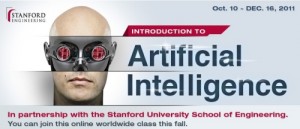 Fans of Google's Android App Inventor can breathe a sigh of relief. Following on last week's news that Google planned to shut App Inventor down, the company announced that it was open-sourcing the project and handing it over to MIT Media Lab. The Media Lab in turn, and with seed funding from Google, announced it would launch a new Center for Mobile Learning, focusing on how new mobile technologies can help enhance learning and utilizing App Inventor as its first project.
Fans of Google's Android App Inventor can breathe a sigh of relief. Following on last week's news that Google planned to shut App Inventor down, the company announced that it was open-sourcing the project and handing it over to MIT Media Lab. The Media Lab in turn, and with seed funding from Google, announced it would launch a new Center for Mobile Learning, focusing on how new mobile technologies can help enhance learning and utilizing App Inventor as its first project.
- Phi Delta Kappa and Gallup released the results this week of their annual poll about "Public Attitudes Toward the Public Schools." There are any number of interesting statistics to cite: things like when asked "Which do you think is most important for our nation’s future — to encourage high school and college students with skills in science and math to become scientists or to become science and math teachers?" respondents were split, with 47% saying "scientists" and 48% saying "science teachers." Or that 72% responded that elementary school students shouldn't have access to e-books. Or that 50% of respondents said they'd rather have an ineffective teacher offline than an effective teacher online. Lots of food for thought here.
- This week marks the second anniversary of #edchat, the weekly education chats, Tuesdays on Twitter. A big thanks to its founders Shelly Terrell, Tom Whitby, and Steven Anderson and to all those who participate.
- Remember how we asked a few weeks ago whether MOOCs were the future of online learning? Well, at last count, some 100,000 people have signed up for the massively open online course on artificial learning this fall at Stanford. If that seems like a tad overwhelming, I recommend Introduction to Databases or Introduction to Machine Learning, both of which will also be offered as open online classes. [More on this next week].
- According to a study released this week by Campusbooks, six of seven of the top e-booksellers (including Amazon) offer less than 50% of the books that college students need for back-to-school. The company -- which certainly has skin in the game, if you will, as a provider of digital content -- said it looked at the top 1,000 textbooks students will use this fall and found that most e-book retailers had few of the titles available. According to its findings, CoureSmart had 82.2%, Barnes & Noble offered 46.7%, Kno offered 43.6%, and Kindle (for either purchase or rental) offered 14.9%.
- Amazon launched a new iPhone app this week aimed at the college student market. The app claims to make it easier for students to shop for textbooks (among other things, of course), promising the Amazon 70% discount, of course. More interestingly, perhaps, than the shopping features: the app will also let students scan the barcode from textbooks, see the trade-in price for their book, and submit it to Amazon for trade-in.
- A busy week for the textbook rental company Chegg. Yes, it's back-to-school and textbook renting season, sure, but add to the excitement this week the announcement that Chegg was joining the e-textbook race with its own HTML5 offerings. Add to that news that Chegg was acquiring another company, the online tutoring service Student of Fortune. Will students see Chegg as their one-stop-shop for educational textbooks and services? The company sure hopes so.
- Skillshare announced this week that it has raised $3.1 million from Union Square Ventures and Spark Capital to help extend its offerings. Skillshare allows anyone to offer a class -- on or offline. A sign, perhaps of great and committed investors: USV's Alfred Wenger has taught a Skillshare class on Bayesian probability.
- It's one thing to open up classes and learning opportunities to the public. It's another thing altogether to offer (alternative) accreditation. But if you take the new 10-week class in front development, offered by New York City's hot new tech-entrepreneur-education campus General Assembly, you'll get certification to that effect. A hat-tip to Betabeat's Adrianne Jeffries for the story.
- Broken Thumb Apps, maker of kids' mobile apps, was fined $50,000 this week for COPPA violations. Although far smaller than a settlement earlier this year against now-Disney-owned Playdom (that one was $3 million), the fine against Broken Thumb Apps represents the first COPPA settlement regarding collection of children's data from a mobile app. The FCC found that the company had collected children's email addresses without parental consent.
- Robots in zero gravity -- no, it's not Ridley Scott's remake of Blade Runner, a whole different story altogether. Rather, it's a new competition robotics competitionannouced this week by NASA and DARPA. Zero Robotics challenges teams to build robots that can complete tasks in zero gravity.
- The reference management tool Zotero announced a number of features it plans to roll out over the coming weeks, including a standalone version of Zotero (for Windows, Mac, and Linux. Firefox browser no longer required) and browser extensions for Safari, Firefox, and Chrome.
- Equity firms love education technology companies, or so it seems. On the heels of Providence Equity buying Blackboard, we have news this week that equity firm Permira Funds has acquired the student assessment company Renaissance Learning for $1.6 billion.

